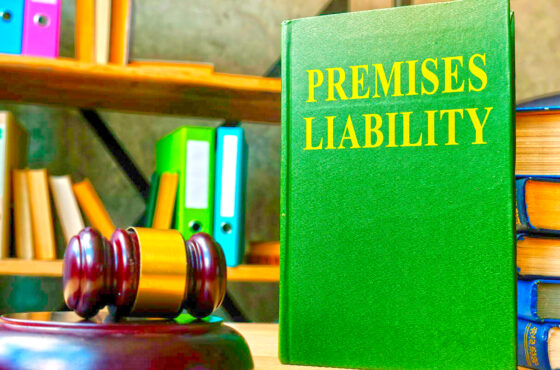
Injured victims may wonder who owes the premises liability duty when tenants have rented the land and there is a tenant injured on the property. Landlords cannot be responsible for every injury on their property, but in many circumstances, they are liable based on their conduct. Illinois law outlines specific situations where the landowner can be held liable.
In Chicago, landlords are further obligated by the Residential Landlord and Tenant Ordinance (RTLO) to “maintain the property in compliance with all applicable provisions of the Municipal Code,” but even with this provision, not every injury caused by maintenance neglect can be declared the fault of the owner.
Determining who owes the premises liability duty when tenants have rented the land and there is a tenant injured on the property can be complicated in some cases. Not all landlord and tenant relationships have the same legal protections for renters. In the city of Chicago, “owner-occupied buildings with six units or less; most units in hotels, motels and rooming houses; dormitories, shelters, employee’s quarters, and non-residential rental properties; and owner-occupied co-ops,” do not hold the same obligations as typical residential rental properties. Illinois law transfers even more liability to the tenant and does not require landlords to keep their property free of dangerous or defective conditions, with only a few exceptions. Even when a lease specifically states the landlord is responsible for property maintenance, if the provision is not specific enough, it can be difficult to make a case in Illinois without the knowledge of an experienced premises liability lawyer. While there are general circumstances where a landlord is responsible for an injury, there can be mitigating factors that push the responsibility back to the tenant.
When a lease is signed, a landlord has a duty of care to the tenants on the lease, as well as their guests (legally known as invitees), but under Illinois law, this does not extend to adult trespassers. While a trespasser usually refers to an unwanted guest related to criminal activity, a lease may require a tenant to obtain permission for a guest to stay for an extended period of time. If that is not obtained, the duty of care may no longer apply.
According to the Illinois Premises Liability Act, property owners are responsible for maintaining reasonably safe premises. The Act outlines the duty owed by property owners as practicing“reasonable care under the circumstances regarding the state of the premises or acts done or omitted on them.” The reasonable duty of care does not include:
Property owners cannot reasonably foresee every issue that may arise, so there are many circumstances where the tenant will end up liable for injuries. Common reasons the liability falls on the tenant include reckless activity or negligence on the tenant’s part. While a leak that was reported and not fixed in a timely manner may fall on the landlord, the landlord may not be responsible for a leak that has not been mentioned.
Tenants are also responsible for keeping their space safe. If a tenant makes a mess, it is the tenant’s responsibility to clean it up. If someone is injured due to the tenant’s failure to clean up the mess they created, the liability for these injuries would then fall on the tenant. Generally, a tenant will be liable for injuries caused by his or her own actions, unless the personal injury is the result of a property defect that transfers the liability to the landlord.
While a lease moves some obligations onto the landlord, a lease may also require certain responsibilities from a tenant. Unless putting these responsibilities on the tenant violates a local statute, when a tenant is not fulfilling his or her responsibility to care for the property, it may be difficult to prove a landlord is liable. Many forms of reckless activity are specifically prohibited in a lease. However, if an activity can be considered reckless, the tenant most likely is liable for his or her own actions.
Knowing what a lease requires and what responsibilities a tenant has taken on signing a lease can be crucial in showing that any issue is the fault of landlord negligence, not the tenant.
When is a landlord at fault for an accident? In Illinois, the owner is not responsible for keeping the property safe by default. However, there are six scenarios where a landlord is liable for injuries.
Documentation of a landlord’s negligence can be crucial in proving the issue falls under one of these exceptions. While the RLTO does require inspections by the property owner to ensure the premises are safe, a cursory inspection may not uncover every fault the tenant has noticed. Not only should the tenant report any issues as soon as possible, but taking photographs and keeping a timeline of events will help build a case showing who owes the premises liability duty.